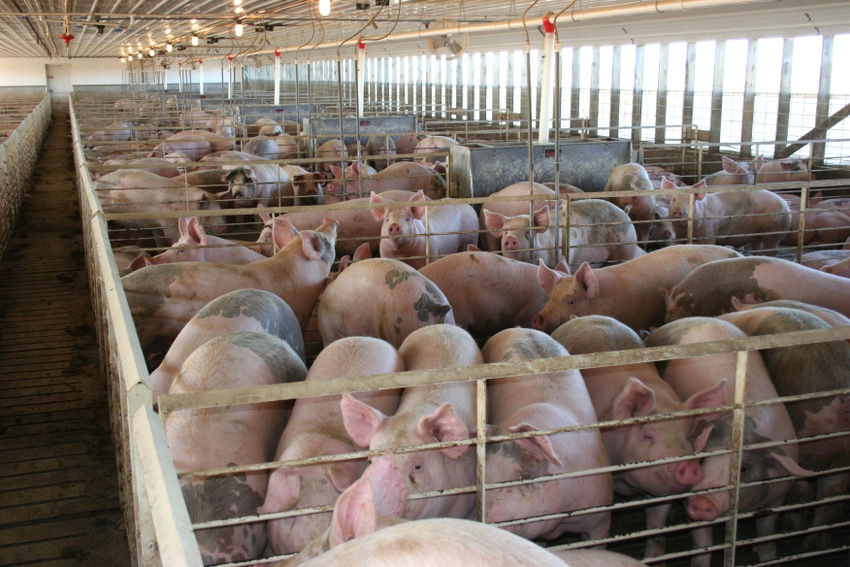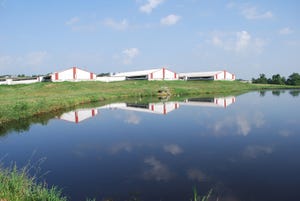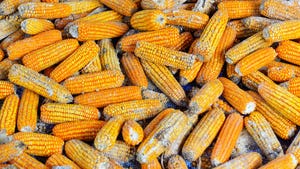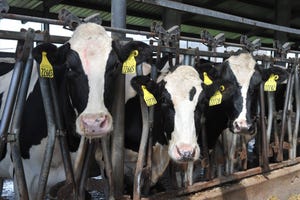DOJ provides guidance for pork industry to address challenges
Agency says it does not intend to challenge actions taken to ease impact of pandemic.

The U.S. Department of Justice’s Antitrust Division has provided guidance for collaboration among U.S. hog farmers to effectively address unprecedented challenges brought on by the COVID-19 pandemic. The decision was in response to a “business review” letter submitted to DOJ by the National Pork Producers Council (NPPC) seeking permission to give hog farmers greater flexibility in working to maximize the number of hogs entering the food supply, minimize the tragic need to euthanize hogs and facilitate the safe and orderly euthanasia of those hogs that are not able to enter the food supply.
COVID-19-related pork packing plant closures and slowdowns have caused a severe backup of pigs on farms. Overcrowding affects pigs’ ability to rest comfortably and may result in aggression and injuries. It also makes it a challenge to maintain air quality and temperatures that keep animals comfortable. To prevent animal suffering, farmers are being forced to euthanize animals.
“Our goal is to efficiently process as many hogs as possible into the food supply,” said NPPC president Howard “A.V.” Roth, a hog farmer from Wauzeka, Wis. “Appropriate collaboration across the industry and with state and federal government officials will minimize the number of pigs that must be euthanized and ensure that it is handled humanely and that disposal is environmentally sound.”
Following is an example of the type of industry collaboration NPPC cited in its letter to DOJ:
To aid farmers in their unprecedented need to depopulate large numbers of hogs, NPPC is assisting its state organizations, state governments and farmers in identifying sources of euthanasia equipment and is participating in discussions regarding the organization of centralized euthanasia and disposal stations. This process includes disseminating projections as to the number of hogs those facilities may handle each day. NPPC and its members may seek to collaborate to discuss the most orderly and efficient euthanization process.
Following an expedited review, DOJ concluded that it does not presently intend to challenge current actions by the pork industry if it is: (1) “compelled by an agreement with a federal agency or a clearly defined federal government policy” and (2) “supervised by a federal agency."
First, NPPC proposed to DOJ to work in conjunction with officials from the U.S. Department of Agriculture or relevant state and local governments to “implement an orderly euthanization and disposal process” and “communicat[e] with farmers who may need assistance humanely euthanizing and disposing of unmarketable hogs.”
Second, NPPC proposed to help federal and state agencies develop other initiatives “to address the logistical, economic, ethical and environmental challenges pork processing facility closures and capacity constraints the COVID-19 outbreak has caused for hog farmers.”
Assistant attorney general Makan Delrahim wrote in his response, “Based on your representations, most of this conduct will occur at the direction and under the supervision and coordination of the USDA — a government agency — and, therefore, should not raise concerns under the antitrust laws. Moreover, NPPC’s communication of non-competitively sensitive information to its members, e.g., best practices for depopulating unmarketable hogs, even if not occurring at the direction of and under the supervision and coordination of the USDA, similarly is unlikely to raise concerns.”
However, Delrahim said DOJ does reserve the right to challenge the conduct in the future if it is later revealed to be anticompetitive in purpose or effect.
“While for the reasons explained below your proposed conduct appears procompetitive, the department would have serious concerns if industry participants, such as meat processors, engaged in coordination that facilitated price fixing, output restrictions, market allocation, anticompetitive exchanges of information or other anticompetitive conduct.”
About the Author(s)
You May Also Like





